-
 Univers
Univers
-
 Ebooks
Ebooks
-
 Livres audio
Livres audio
-
 Presse
Presse
-
 Podcasts
Podcasts
-
 BD
BD
-
 Documents
Documents
-
- Cours
- Révisions
- Ressources pédagogiques
- Sciences de l’éducation
- Manuels scolaires
- Langues
- Travaux de classe
- Annales de BEP
- Etudes supérieures
- Maternelle et primaire
- Fiches de lecture
- Orientation scolaire
- Méthodologie
- Corrigés de devoir
- Annales d’examens et concours
- Annales du bac
- Annales du brevet
- Rapports de stage
La lecture à portée de main
Celtic Fairy Tales , livre ebook
81
pages
English
Ebooks
2010
Écrit par
Joseph Jacobs
Publié par
Andrews UK
Vous pourrez modifier la taille du texte de cet ouvrage
Obtenez un accès à la bibliothèque pour le consulter en ligne En savoir plus
Découvre YouScribe en t'inscrivant gratuitement
Découvre YouScribe en t'inscrivant gratuitement
81
pages
English
Ebook
2010
Vous pourrez modifier la taille du texte de cet ouvrage
Obtenez un accès à la bibliothèque pour le consulter en ligne En savoir plus
Publié par
Date de parution
12 août 2010
Nombre de lectures
0
EAN13
9781849891912
Langue
English
Publié par
Date de parution
12 août 2010
Nombre de lectures
0
EAN13
9781849891912
Langue
English
Title Page
CELTIC FAIRY TALES
BY
JOSEPH JACOBS
TO ALFRED NUTT
Publisher Information
Digital Edition converted and published by
Andrews UK Limited 2010
www.andrewsuk.com
This Digital Edition, including all typography, formatting and layout is copyright 2010 Andrews UK. This book is sold subject to the condition that it shall not, by way of trade or otherwise, be lent, resold, hired out or otherwise circulated without the publisher’s prior written consent in any form of binding or cover other than that in which it is published, and without a similar condition being imposed on the subsequent purchaser.
PREFACE
Last year, in giving the young ones a volume of English Fairy Tales, my difficulty was one of collection. This time, in offering them specimens of the rich folk-fancy of the Celts of these islands, my trouble has rather been one of selection. Ireland began to collect her folk-tales almost as early as any country in Europe, and Croker has found a whole school of successors in Carleton, Griffin, Kennedy, Curtin, and Douglas Hyde. Scotland had the great name of Campbell, and has still efficient followers in MacDougall, MacInnes, Carmichael, Macleod, and Campbell of Tiree. Gallant little Wales has no name to rank alongside these; in this department the Cymru have shown less vigour than the Gaedhel. Perhaps the Eisteddfod, by offering prizes for the collection of Welsh folk-tales, may remove this inferiority. Meanwhile Wales must be content to be somewhat scantily represented among the Fairy Tales of the Celts, while the extinct Cornish tongue has only contributed one tale.
In making my selection I have chiefly tried to make the stories characteristic. It would have been easy, especially from Kennedy, to have made up a volume entirely filled with “Grimm’s Goblins” à la Celtique . But one can have too much even of that very good thing, and I have therefore avoided as far as possible the more familiar “formulae” of folk-tale literature. To do this I had to withdraw from the English-speaking Pale both in Scotland and Ireland, and I laid down the rule to include only tales that have been taken down from Celtic peasants ignorant of English.
Having laid down the rule, I immediately proceeded to break it. The success of a fairy book, I am convinced, depends on the due admixture of the comic and the romantic: Grimm and Asbjörnsen knew this secret, and they alone. But the Celtic peasant who speaks Gaelic takes the pleasure of telling tales somewhat sadly: so far as he has been printed and translated, I found him, to my surprise, conspicuously lacking in humour. For the comic relief of this volume I have therefore had to turn mainly to the Irish peasant of the Pale; and what richer source could I draw from?
For the more romantic tales I have depended on the Gaelic, and, as I know about as much of Gaelic as an Irish Nationalist M. P., I have had to depend on translators. But I have felt myself more at liberty than the translators themselves, who have generally been over-literal, in changing, excising, or modifying the original. I have even gone further. In order that the tales should be characteristically Celtic, I have paid more particular attention to tales that are to be found on both sides of the North Channel.
In re-telling them I have had no scruple in interpolating now and then a Scotch incident into an Irish variant of the same story, or vice versa . Where the translators appealed to English folklorists and scholars, I am trying to attract English children. They translated; I endeavoured to transfer. In short, I have tried to put myself into the position of an ollamh or sheenachie familiar with both forms of Gaelic, and anxious to put his stories in the best way to attract English children. I trust I shall be forgiven by Celtic scholars for the changes I have had to make to effect this end.
The stories collected in this volume are longer and more detailed than the English ones I brought together last Christmas. The romantic ones are certainly more romantic, and the comic ones perhaps more comic, though there may be room for a difference of opinion on this latter point. This superiority of the Celtic folk-tales is due as much to the conditions under which they have been collected, as to any innate superiority of the folk-imagination. The folk-tale in England is in the last stages of exhaustion. The Celtic folk-tales have been collected while the practice of story-telling is still in full vigour, though there are every signs that its term of life is already numbered. The more the reason why they should be collected and put on record while there is yet time. On the whole, the industry of the collectors of Celtic folk-lore is to be commended, as may be seen from the survey of it I have prefixed to the Notes and References at the end of the volume. Among these, I would call attention to the study of the legend of Beth Gellert, the origin of which, I believe, I have settled.
While I have endeavoured to render the language of the tales simple and free from bookish artifice, I have not felt at liberty to retell the tales in the English way. I have not scrupled to retain a Celtic turn of speech, and here and there a Celtic word, which I have not explained within brackets - a practice to be abhorred of all good men. A few words unknown to the reader only add effectiveness and local colour to a narrative, as Mr. Kipling well knows.
One characteristic of the Celtic folk-lore I have endeavoured to represent in my selection, because it is nearly unique at the present day in Europe. Nowhere else is there so large and consistent a body of oral tradition about the national and mythical heroes as amongst the Gaels. Only the byline , or hero-songs of Russia, equal in extent the amount of knowledge about the heroes of the past that still exists among the Gaelic-speaking peasantry of Scotland and Ireland. And the Irish tales and ballads have this peculiarity, that some of them have been extant, and can be traced, for well nigh a thousand years. I have selected as a specimen of this class the Story of Deirdre, collected among the Scotch peasantry a few years ago, into which I have been able to insert a passage taken from an Irish vellum of the twelfth century. I could have more than filled this volume with similar oral traditions about Finn (the Fingal of Macpherson’s “Ossian”). But the story of Finn, as told by the Gaelic peasantry of to-day, deserves a volume by itself, while the adventures of the Ultonian hero, Cuchulain, could easily fill another.
I have endeavoured to include in this volume the best and most typical stories told by the chief masters of the Celtic folk-tale, Campbell, Kennedy, Hyde, and Curtin, and to these I have added the best tales scattered elsewhere. By this means I hope I have put together a volume, containing both the best, and the best known folk-tales of the Celts. I have only been enabled to do this by the courtesy of those who owned the copyright of these stories. Lady Wilde has kindly granted me the use of her effective version of “The Horned Women;” and I have specially to thank Messrs. Macmillan for right to use Kennedy’s “Legendary Fictions,” and Messrs. Sampson Low & Co., for the use of Mr. Curtin’s Tales.
In making my selection, and in all doubtful points of treatment, I have had resource to the wide knowledge of my friend Mr. Alfred Nutt in all branches of Celtic folk-lore. If this volume does anything to represent to English children the vision and colour, the magic and charm, of the Celtic folk-imagination, this is due in large measure to the care with which Mr. Nutt has watched its inception and progress. With him by my side I could venture into regions where the non-Celt wanders at his own risk.
Lastly, I have again to rejoice in the co-operation of my friend, Mr. J. D. Batten, in giving form to the creations of the folk-fancy. He has endeavoured in his illustrations to retain as much as possible of Celtic ornamentation; for all details of Celtic archaeology he has authority. Yet both he and I have striven to give Celtic things as they appear to, and attract, the English mind, rather than attempt the hopeless task of representing them as they are to Celts. The fate of the Celt in the British Empire bids fair to resemble that of the Greeks among the Romans. “They went forth to battle, but they always fell,” yet the captive Celt has enslaved his captor in the realm of imagination. The present volume attempts to begin the pleasant captivity from the earliest years. If it could succeed in giving a common fund of imaginative wealth to the Celtic and the Saxon children of these isles, it might do more for a true union of hearts than all your politics.
CONNLA AND THE FAIRY MAIDEN
Connla of the Fiery Hair was son of Conn of the Hundred Fights. One day as he stood by the side of his father on the height of Usna, he saw a maiden clad in strange attire coming towards him.
“Whence comest thou, maiden?” said Connla.
“I come from the Plains of the Ever Living,” she said, “there where there is neither death nor sin. There we keep holiday alway, nor need we help from any in our joy. And in all our pleasure we have no strife. And because we have our homes in the round green hills, men call us the Hill Folk.”
The king and all with him wondered much to hear a voice when they saw no one. For save Connla alone, none saw the Fairy Maiden.
“To whom art thou talking, my son?” said Conn the king.
Then the maiden answered, “Connla speaks to a young, fair maid, whom neither death nor old age awaits. I love Connla, and now I call him away to the Plain of Pleasure, Moy Mell, where Boadag is king for aye, nor has there been complaint or sorrow in that land since he has held the kingship. Oh, come with me, Connla of the Fiery Hair, ruddy as the dawn with thy tawny skin. A fair
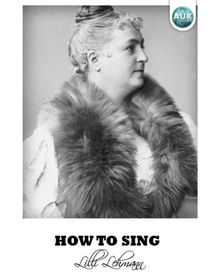
Ebooks
How To Sing
Lilli Lehmann

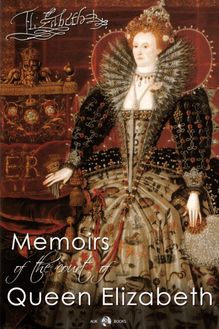
Ebooks
Memoirs of the Court of Queen Elizabeth
Lucy Aikin

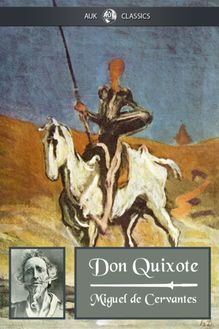
Ebooks
Don Quixote
Cervantes Saavedra Miguel De

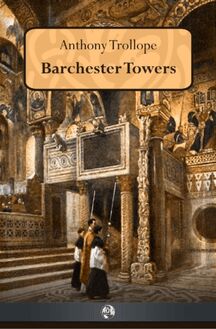
Ebooks
Barchester Towers
Anthony Trollope

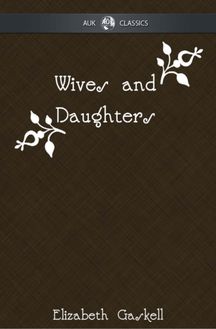
Ebooks
Wives and Daughters
Elizabeth Gaskell

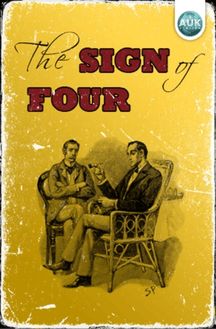
Ebooks
Sherlock Holmes - The Sign of the Four
Arthur Conan Doyle Sir

Ebooks
Romans policiers, polars, thrillers
Sherlock Holmes - The Sign of the Four
Arthur Conan Doyle Sir
59 pages
English
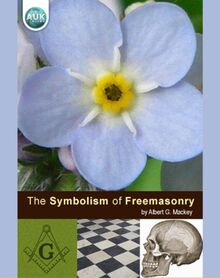
Ebooks
Symbolism of Freemasonry
Albert Mackey

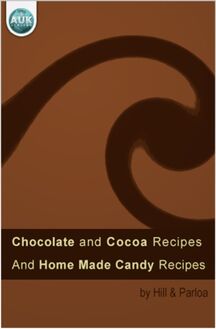
Ebooks
Chocolate and Cocoa Recipes
Maria Parloa

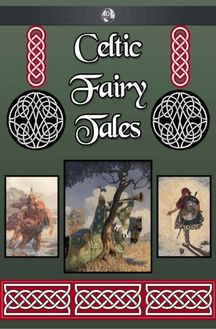
Ebooks
Celtic Fairy Tales
Joseph Jacobs


Ebooks
Henry VIII and his Court
Luise Muhlbach

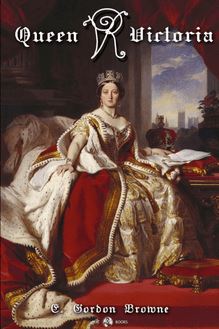
Ebooks
Queen Victoria
Gordon Brown E

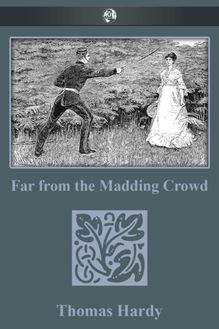
Ebooks
Far From the Madding Crowd
Thomas Hardy

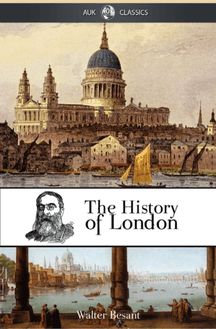
Ebooks
History of London
Walter Besant

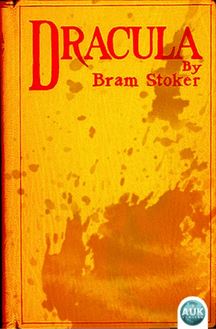
Ebooks
Dracula
Bram Stoker

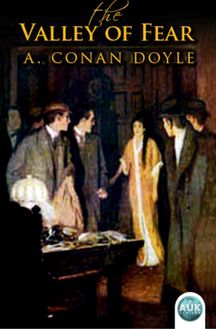
Ebooks
Sherlock Holmes - The Valley of Fear
Arthur Conan Doyle Sir

Ebooks
Romans policiers, polars, thrillers
Sherlock Holmes - The Valley of Fear
Arthur Conan Doyle Sir
84 pages
English
-
 Univers
Univers
-
 Ebooks
Ebooks
-
 Livres audio
Livres audio
-
 Presse
Presse
-
 Podcasts
Podcasts
-
 BD
BD
-
 Documents
Documents
-
Jeunesse
-
Littérature
-
Ressources professionnelles
-
Santé et bien-être
-
Savoirs
-
Education
-
Loisirs et hobbies
-
Art, musique et cinéma
-
Actualité et débat de société
-
Jeunesse
-
Littérature
-
Ressources professionnelles
-
Santé et bien-être
-
Savoirs
-
Education
-
Loisirs et hobbies
-
Art, musique et cinéma
-
Actualité et débat de société
-
Actualités
-
Lifestyle
-
Presse jeunesse
-
Presse professionnelle
-
Pratique
-
Presse sportive
-
Presse internationale
-
Culture & Médias
-
Action et Aventures
-
Science-fiction et Fantasy
-
Société
-
Jeunesse
-
Littérature
-
Ressources professionnelles
-
Santé et bien-être
-
Savoirs
-
Education
-
Loisirs et hobbies
-
Art, musique et cinéma
-
Actualité et débat de société
- Cours
- Révisions
- Ressources pédagogiques
- Sciences de l’éducation
- Manuels scolaires
- Langues
- Travaux de classe
- Annales de BEP
- Etudes supérieures
- Maternelle et primaire
- Fiches de lecture
- Orientation scolaire
- Méthodologie
- Corrigés de devoir
- Annales d’examens et concours
- Annales du bac
- Annales du brevet
- Rapports de stage





